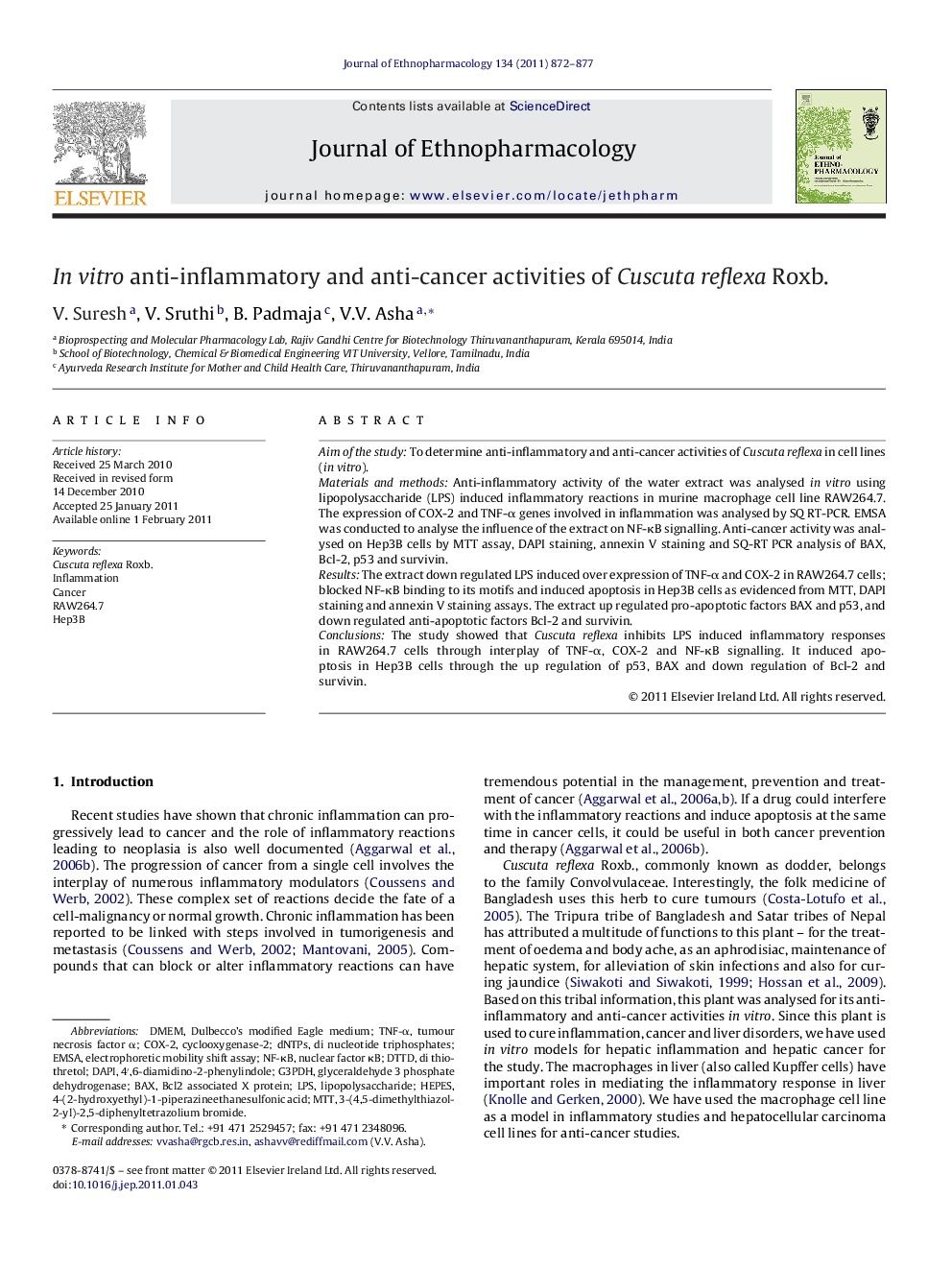| Article ID | Journal | Published Year | Pages | File Type |
|---|---|---|---|---|
| 5840293 | Journal of Ethnopharmacology | 2011 | 6 Pages |
Aim of the studyTo determine anti-inflammatory and anti-cancer activities of Cuscuta reflexa in cell lines (in vitro).Materials and methodsAnti-inflammatory activity of the water extract was analysed in vitro using lipopolysaccharide (LPS) induced inflammatory reactions in murine macrophage cell line RAW264.7. The expression of COX-2 and TNF-α genes involved in inflammation was analysed by SQ RT-PCR. EMSA was conducted to analyse the influence of the extract on NF-κB signalling. Anti-cancer activity was analysed on Hep3B cells by MTT assay, DAPI staining, annexin V staining and SQ-RT PCR analysis of BAX, Bcl-2, p53 and survivin.ResultsThe extract down regulated LPS induced over expression of TNF-α and COX-2 in RAW264.7 cells; blocked NF-κB binding to its motifs and induced apoptosis in Hep3B cells as evidenced from MTT, DAPI staining and annexin V staining assays. The extract up regulated pro-apoptotic factors BAX and p53, and down regulated anti-apoptotic factors Bcl-2 and survivin.ConclusionsThe study showed that Cuscuta reflexa inhibits LPS induced inflammatory responses in RAW264.7 cells through interplay of TNF-α, COX-2 and NF-κB signalling. It induced apoptosis in Hep3B cells through the up regulation of p53, BAX and down regulation of Bcl-2 and survivin.
Graphical abstractDownload high-res image (176KB)Download full-size image
